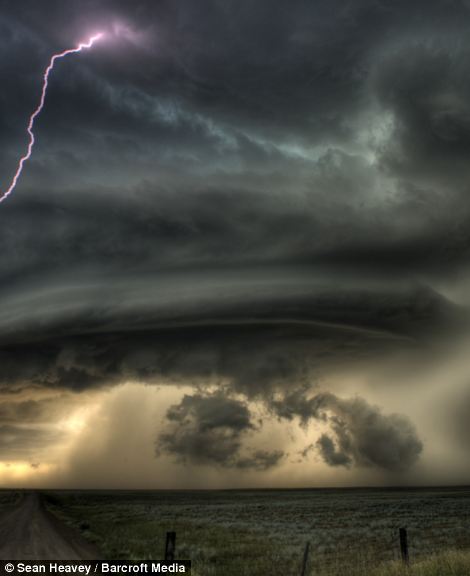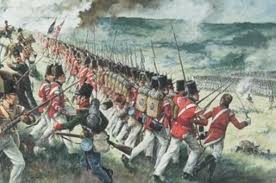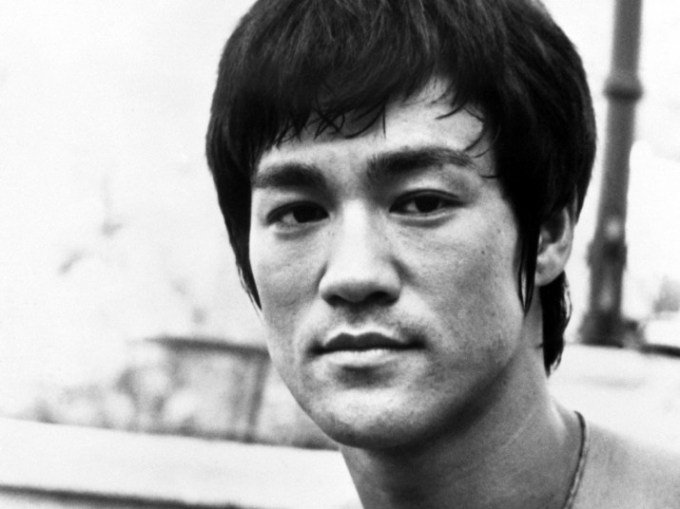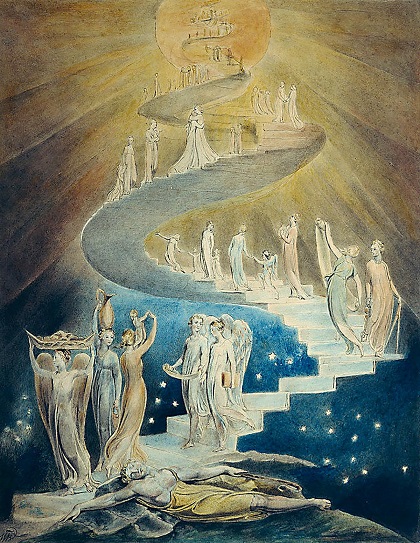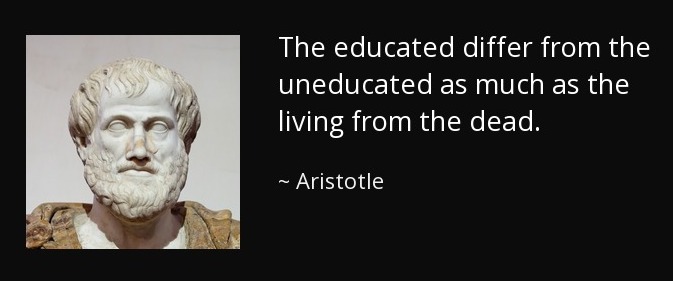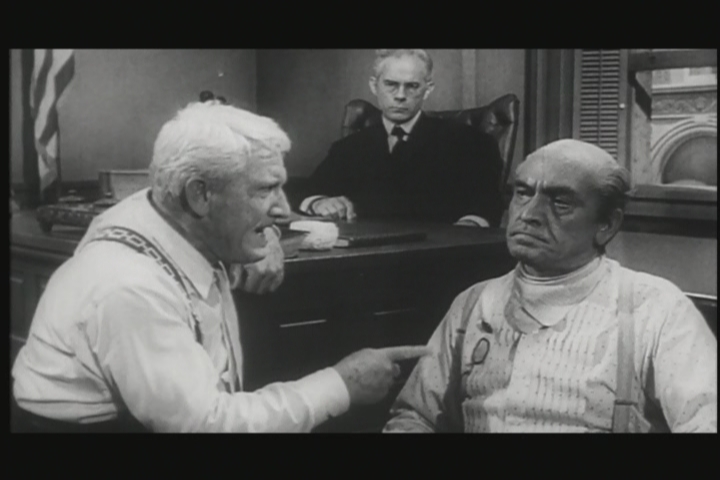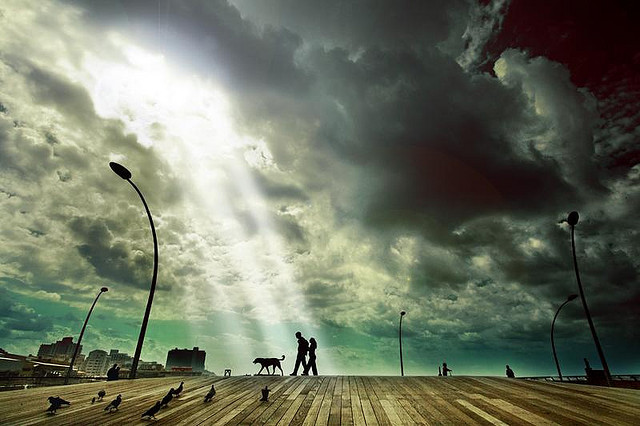|
home | what's new | other sites | contact | about |
|||||||||||||
|
Word Gems exploring self-realization, sacred personhood, and full humanity
Dr. David Hawkins a stair-step ascent to enlightenment Levels Of Human Consciousness:
return to "Consciousness" main-page
Dr. David R. Hawkins, M.D., Ph.D. Bio from the 'net: "Psychiatrist Dr. David R. Hawkins developed a map of the levels of human consciousness that uses a muscle-testing technique called Applied Kinesiology to document the nonlinear spiritual realm. "The research was scientifically-validated and published in Dr. Hawkins' doctoral dissertation titled Qualitative and Quantitative Analysis and Calibrations of the Level of Human Consciousness, an elaborate discussion of the Scale of Consciousness and its significance as outlined in his groundbreaking book, Power vs. Force: The Anatomy of Consciousness.
"Briefly, each level of consciousness coincides with determinable human behaviors and perceptions about life and God. Each level represents a corresponding attractor field of varying strength that exists beyond our three-dimensional reality. "Dr. Hawkins points out that the two greatest spiritual growth barriers seem to be at level 200 and 500. Two hundred, the level of courage, represents a profound shift from destructive and harmful behavior to life-promoting lifestyles; everything below 200 makes one go weak using kinesiology. [According to Hawkins] currently, approximately 78% of the world's population is below this significant level. Editor's note: This "78%" is tantalizingly close to the "75% who, according to Spirit Guides, will spend at least some time in a dark place upon crossing over. "The destructive capacity of this majority would annihilate mankind without the counterbalancing effect of the 22% above 200. Because the scale of consciousness is logarithmic, each incremental point represents a giant leap in power. As such, one person calibrated at 600 counterbalances the negativity of 10 million people below 200.
"Hawkins conducted a 29-year study that demonstrated that the human body becomes stronger or weaker depending on a person's mental state. He created a scale from 1-1000 that mapped human consciousness. Furthermore, he demonstrated that this map can be used as a blueprint to reach higher states of consciousness that can be identified simply by applying a small amount of pressure on an outstretched arm. His research is based on a well-established science called kinesiology, which has to do with the testing of an all-or-none muscle response stimulus. A positive stimulus generates a strong muscle response and a negative stimulus results in a demonstrable weakening of the test muscle. Clinical kinesiological muscle-testing as a diagnostic technique has been verified widely over the past 25 years."
#1 Energy Level 20: SHAME
In my articles, I have often referenced the work of Dr. John Welwood, his " Bad Self and Bad Other." Hawkins speaks similarly of "moral extremists who [project] their own unconscious Shame onto others [turning them into "Bad Others"] whom they then feel justified in righteously attacking."
Drew Bundini Brown, played by Jamie Foxx, in Ali
To maintain his heroin addiction, Brown sells Ali's championship belt for $500, after which he is dismissed from the boxer's inner circle. Later, having purged himself of drug usage, Brown returns and pleads for his job; Ali somewhat reluctantly agrees to make amends. It is at this point that Brown begins to exude an aura of rigid super-righteousness. We sense Brown's consummate self-loathing, his Shame, subsuming this vocal and new-found virtuousness. He now sings louder than all in the choir, but in this music there is no joy. Brown's inflexibility, his harsh super-moralism, immediately reminds us of kindred others within a religious context. Not all, but too many, of the intractable religious, have been told once too often that they're worthless sinners, and, despite the at-the-ready hallelujahs, they have come to believe it.
the utter shamelessness
One of the great actors of the last generation,
Cobb portrayed a bitter and recalcitrant juror who, despite mounting evidence to the contrary, insisted that a young boy had murdered his father. In the last scene we discover the root of his obstinate vituperation - his guilt regarding his failings as a father toward his own son. Many, like this juror, are motivated by the hidden wellsprings of Shame and Guilt. I have often spoken of our friend, "Dear Leader." He employs Guilt as a most useful weapon in his arsenal of control and intimidation - but he would have no power at all unless we first gave it to him; that is, our own predispositions to believe that we are worthy of condemnation, our own sense of Guilt.
Third Reich Nazi Werhmacht belt buckle with inscription, Gott mit uns; meaning, God with us.
Some people think that enlightenment means to be cultured, a lover of the arts, a connoisseur of fine things. Certainly, enlightenment will lead one to appreciate beauty in all of its forms, but mere patronage of the arts, by itself, is no sure marker of the higher levels. One of the most disturbing and incongruous pictures - maybe you've seen this in a movie, but, it's historically accurate - a Nazi officer, at home, sitting in his leather easy-chair; a blonde-haired perfect little boy and perfect little girl play their puzzles at his feet. A model of good breeding and refinement, he quietly sips his dark-red sherry from a handcrafted crystal goblet, as he enjoys the ambiance of Beethoven's Sonata #14, the Moonlight Sonata, a musical tranquility. On his lap rests a well-worn volume of Kant's Critique Of Pure Reason; also, at his elbow, on the rich-mahogany side-table, reside copies of Schopenhauer and Hegel. His eyes wander now to a spot above the whispering fireplace - a favorite painting of his, Altarpiece of the Seven Joys of the Virgin, the Adoration of the Magi, by an unknown German Renaissance artist...
As he revels in the multihued magic of such aesthetic, instinctively, and enjoying a measure of comfort in so doing, he fingers his belt-buckle, which offers quiet assurance of... God with us. In the morning, he must leave this oasis of peace, this serenity, wherein he is sustained by the comforts of home and hearth, his wife and children. He will return to his work, just outside a village in southwest Poland. He is one of the supervisors at the Auschwitz ovens and gas-chambers, is charged with the duty of separating the fathers from their families, the weeping mothers from their blonde-haired perfect little boys and perfect little girls. He doesn't allow himself to think too much of these sounds of weeping; after all, he consoles himself, these sordid creatures are not really human, anyone can see that; in any case, they brought all this upon themselves.
When someone spiritually unconscious speaks ill or, in some manner, minimizes the humanity of another, he does so in order to grant himself permission, justification, and absolution, to inflict whatever harm upon the object of his wrath he believes he can get away with. We can't just say, "I know it's wrong, but I'm going to harm you anyway"; instead, we entertain this ritual of self-propaganda whereby we try to convince ourselves that the one against whom we rail deserves to be harmed. It's their own fault, you know... On this low level of shame and guilt, we are blinded to natural propensities toward human kindness. In this darkness and distortion, it all seems quite normal and right that certain "evil ones" should be harmed; they are "so bad" that they don't deserve even a modicum of respect or due process - and in this licensed and intoxicated hatred, as the Great Enlightened Man once said, "they know not what they do."
the greater the guilt and self-loathing, the greater the rage toward one's victim Viktor Frankl informs us that, in the concentration camps, the Kapos, drawn from the ranks of the prisoners, were often more brutal than even the SS guards. Traitors to their own people, the Kapos' ample self-loathing, due to shame and guilt, propelled them to extremities of brutality. We must come to understand that the great, and also the lesser, crimes of brutality against humanity, or even that directed toward a single individual, is the result of this process of dehumanizing the victim, the creation of "The Bad Other"; which is a reflection of one's own loathing, "The Bad Self"; all of which is the fruit of living on the levels of shame and guilt. The greater the self-loathing, the greater the rage toward one's victim; which, in truth, is but redirected self-rage. The demagogue-leaders of society - in all contexts but, especially, in politics and religion - will play upon this human weakness, this infantile developmental stage, and will manipulate the hapless by their own dark energies.
The ultimate license to commit atrocity, the ultimate permission and justification to harm another, the great act of making oneself separate and superior, is to make exclusive claim - especially to one's self - that... it's God's will ... God is on my side; morality and ethics are on my side ... God is with us.
#3 Energy Level 50: APATHY
There is a class of children for whom, far more than others, physical punishment is especially inappropriate. These are the emotionally-sexually-physically abused children in the foster-care system. Suffering under psychological weights of neglect, abandonment, and unlove, they tend not to respond to threats of physical pain. They don't care. It's as if they not only expect, but believe they deserve, to be abused. This is Apathy in the cradle, a most tragic form of disconnect from life. Without healing, there is often little energy available to grow into a whole person.
#4 Energy Level 75: GRIEF
We have all suffered loss in this troubled world. Grief is a normal response to such. But Hawkins here speaks of something else - this is Grief as a way of life, a perpetual state of regret. As a settled state of mind, it causes one to become trapped in a low-level state of consciousness wherein remorse is the only reality. It is this that Jesus warned against in his famous phrase, "weeping and wailing," characterizing certain unfortunates on the other side.
"At the level of 100, a lot more life energy is available - fear of danger is healthy. Fear runs much of the world. Fear of enemies, of old age or death, of rejection, and a multitude of social fears are basic motivators. From the viewpoint of this level, the world looks hazardous, full of traps and threats. Fear is the favored official tool for control by oppressive totalitarian agencies. The media and advertising play to Fear to increase market share. Fear limits growth of the personality and leads to inhibition. Because it takes energy to rise above Fear, the oppressed are unable to reach a higher level unaided. Thus, the fearful seek strong leaders who appear to have conquered their own Fears to lead them out of its slavery."
Hawkins's "strong leaders," whom I call "Dear Leaders," sought and worshipped by the fearful, do most of their business at the level of 100 and below. Demagogues, in fact, are often the great movers of the hearts of humankind; but only at its most base consciousness levels.
"Even more energy is available at this level. Desire motivates vast areas of human activity. Desire moves us to expend great effort to achieve goals or obtain rewards. The desire for money, prestige, or power runs the lives of many of those who have risen above Fear as their predominant motif. Desire is also the level of addiction, wherein it becomes a craving more important than life itself. The Desire for sexual approval has produced an entire cosmetics and fashion industry. Desire is a much higher state than Apathy or Grief, for in order to 'get,' you have to first have the energy to 'want' [which] can start us on the road to achievement." An economic so-called 'stimulus' program is based upon a certain view of human nature - "We'll spend our way out of the recession." People are cast as materialists, soulless Economic Men, who will seek to satisfy themselves with mammon; unfortunately, there is, at present, some truth to this view, but only on the lower levels of awareness.
"Greed is good," said Gordon Gekko. Well, he was right, you know. Desire and greed are the engines, the great motivators, to all manner of social activity, but, primarily, only for those who live near energy level 125. Greed certainly provides more impetus than shame, guilt, or apathy - much of America, and the world, has been built with this energy; but not without very unpleasant consequences. The higher levels, as we'll see, also provide energy for production, but are not tainted with the base alloy of greed and neurotic desire. For those who think all this constitutes heavenly permission to enshrine socialism, I will point out that its associated energies rank lower on the scale than that of capitalism. Socialism gives allegiance to a Dear Leader, which too often translates into flights of self-loathing and the "spoiled self," far down the line from the independent-mindedness of capitalism.
"gimme, gimme, I need, I need, I need"
Some might say, so what's wrong with desire? Don't we all desire certain things? What's wrong with wanting something? Nothing, per se. But it's the grasping neediness, you see, that's suspect. We all require certain things, but, taken too far, Desire speaks to a misperceived permanent condition of lack, of pathological needing and wanting. We witness this dysfunction in low-awareness forms of romantic love. When Hawkins speaks of Desire, he means to emphasize a psychological neediness, that of never having enough; moreover, of not being enough. Think of that funny scene in What About Bob? where Bill Murray chants, I need, I need, I need!
I need, I need, I need!
You cannot be a whole person and live on level 125. The universe, in fact, offers abundance. It is our own myopia which causes a perception of lack. How to remedy this? Actually, Bob's "Death Therapy" [smile] was a "baby step" in the right direction. When Jesus said, "If you have eyes to see," he meant to say, "If your level of consciousness will allow you to perceive."
#7 Energy Level 150: ANGER "Although Anger may lead to homicide and war, as an energy level it's much farther removed from death than those below it. Anger can lead to either constructive or destructive action. As people move out of Apathy and Grief to overcome Fear as a way of life, they begin to want; Desire leads to frustration, which in turn leads to Anger. Thus, Anger can be a fulcrum by which the oppressed are eventually catapulted to freedom. Since Anger stems from frustrated want, it's based on the energy field below it. Frustration results from exaggerating the importance of desires. The angry person may go into a rage, just like a frustrated infant. Anger leads easily to hatred, which has an erosive effect on all areas of a person's life."
"I have always been a storm"
"The pain-body wants to survive, just like every other entity in existence, and it can only survive if it gets you to unconsciously identify with it. It can then rise up, take you over, become you, and live through you. It needs to get its food through you. It will feed on any experience that resonates with its own kind of energy, anything that creates further pain in whatever form: anger, destructiveness, hatred, grief, emotional drama, violence, and even illness. So the pain-body, when it has taken you over, will create a situation in your life that reflects back its own energy frequency for it to feed on. Pain can only feed on pain. Pain cannot feed on joy. It finds it quite indigestible." Certain groups sharing a common race, religion, or nationality might also share a collective pain-body. They can find themselves trapped in an angry mindset of victimhood as they focus on past injustices. And this becomes the dominant energy by which the group makes its way through life. Anger was the basis for my own life-activity for a long time. This stepping-stone energy-field took me over, beginning in my teens.
At the end of "Casino Royale," we meet an angry 007. He has lost the love of his life. Anger can precipitate a denial regarding one's need for love and sense of self. Though his bravado insists that he is okay, in fact, his internal guidance system is well offline; enshrouded by the darkness of anger, out of touch with his true self, he cannot perceive what is most important to his life.
Editor’s note: At the time of this writing, a major political figure strides upon the world scene, and in a good way. The deep state and frothing minions, for now, are in retreat, as they find themselves, to use the new phrase, “b**** slapped” every day, in rapid succession, so much so that the blows are hard to keep track of. People are angry – the ones on the current losing side are angry that their long-entrenched hoodwinking is being shredding, and the former victims are also very angry; angry that they’d allowed themselves to be taken in for so long. Notice Dr. Hawkins’ above assessment: “Anger can be a fulcrum by which the oppressed are eventually catapulted to freedom.” Yes, exactly. And this is happening in real time, every day now. Anger takes to itself much personal power, is no longer willing to play the pleb, carrying water for self-appointed elites. And yet, as we study the list of levels of consciousness, anger is not especially high on the ladder. There's much more to come. Anger can signal the beginnings of an awakening but, of and by itself, is not a true spiritual awakening; but, it is a start, and one’s sense of personhood can be kindled by anger. Think of this growing inner perception of autonomy and self, as opposed to bending the knee to elites, and what this means, as we move up the line toward a fullness of consciousness.
#8 Energy Level 175: PRIDE "Pride, which calibrates at 175, has enough energy to run the United States Marine Corps. In contrast to the lower energy fields, people feel positive as they reach this level. The rise in self-esteem is a balm to all the pain experienced at lower levels of consciousness. Pride looks good and knows it, as it struts in the parade of life. Pride is far enough removed from Shame, Guilt, or Fear that to rise, for instance, out of despair of the ghetto to the self-respect of being a Marine is an enormous jump. [But] Pride feels good only in contrast to the lower levels. Pride is defensive and vulnerable because it's dependent upon external conditions, without which it can suddenly revert to a lower level; it can be knocked back to Shame. Pride is divisive and gives rise to factionalism. Man has habitually died for Pride - armies still regularly slaughter each other for that aspect of it called nationalism. Religious wars, political terrorism are all the price of Pride. Pride [can] block growth [because] emotional problems or character defects are denied."
There is a comedy routine about the Revolutionary War: "Suppose way back in history if you had a referee before every war, and the guy called the toss. Let's go to the Revolutionary War. [Referee speaking] British call heads. It's tails. What do you do, settlers? Settlers say that during the war they will wear any color clothes that they want to, shoot from behind the rocks and trees and everywhere. Says your team must wear red and march in a straight line." Yes, it is absurd ... march in a straight line, wearing bright red, with a big white X on your chest!
Why would intelligent men agree to march to near-certain death in this way? Only a demented form of Pride could precipitate such patently unwise action. I am not against providing for the common defense, but when Pride begins to choke a man with nationalistic stupor, as Hawkins says, "defects are denied."
I remember during my late teens, when I opposed the Viet Nam War, certain ones tried to insult my manhood, attempted to cast shame upon me. I refused to accept their offering, but I began to realize then, as I do much more now, that some - not all - expressions of patriotism can easily devolve into saving face before an unforgiving and demanding peer group. As Hawkins warns, if one's activity is based upon the shaky foundation of Pride, one "can suddenly revert to a lower level; can be knocked back to Shame." If Pride is the basis for one's stance in life, even as the scripture informs us, inevitably, one is headed for a "fall."
#9 Energy Level 200: COURAGE "At the 200 level, [true] power first appears. This is the [energy] zone of exploration, fortitude, and determination. At the lower levels, the world is seen as hopeless, sad, frightening, or frustrating; but at the level of Courage, life is seen to be exciting, challenging, and stimulating, the energy to learn new job skills is available. Growth and education become attainable goals. There's the capacity to face fears or character defects and to grow despite them. Because accomplishments result in positive feedback, self-reward and esteem become progressively self-reinforcing. This is where productivity begins."
Have you seen the docu-drama of Ernest Shackleton's 1914 ill-fated Antarctic expedition? It is billed, without exaggeration I think, as "the greatest survival story ever told." You will want your children and grandchildren to see this. We have rarely witnessed courage such as Shackleton's; but, by his own admission, he wanted, a little too much, the glory and praise of a successful mission. Here is the famous notice he posted in the London Times: Courage, like Greed and Desire, is a good beginning and has sent the world spinning very fast. And I have utmost admiration for the fortitude of the crew of The Endurance. But Courage, without more, will not save the world. I recall the words of the apostle Paul - another famous stalwart in the face of death - which advise us that great courage and heroic exploits are not necessarily the mark of an advanced soul (I Cor. 13:3).
#10 Energy Level 250: NEUTRALITY "Below 250, consciousness tends to take on rigid positions, an impediment in a world that's complex and multifactorial rather than black and white. Taking such [rigid] positions creates polarization, which in turn creates opposition and division. As in the martial arts, a rigid position becomes a point of vulnerability; that which doesn't bend is liable to break...
"The Neutral condition allows for flexibility and nonjudgmental realistic appraisal of problems. To be Neutral means to be relatively unattached to outcomes; not getting one's way is no longer experienced as defeating, frightening, or frustrating. At the Neutral level, a person can say, 'Well, if I don't get this job, I'll get another,' the beginning of inner confidence; sensing one's own power, one isn't easily intimidated or driven to prove anything; life is basically okay if one can roll with the punches. [At the 250 level, people] are easy to get along with because they're not interested in conflict, competition, or guilt. [They] don't need to control other people's behavior [and because of their love] of freedom, they're difficult to control." At energy-level 250, people drop out of cultism, in all its varieties, and stop following Dear Leaders. Editor's note: To build upon the above comment, Neutrality says, "If I can't achieve my goal by way of a preferred plan, then I'll find another way; so it doesn't really matter how I get there, or what happens - because I'll find a way to make it happen." This is real personal power, the kind that never becomes a victim. If Neutrality's goal is right and honorable, then it never gives up, as the entire universe will eventually bow to its will. Compare this to the "mountain-moving" philosophy of Mark 11.
#11 Energy Level 310: WILLINGNESS Level 310 "may be seen as the gateway to the higher levels. For instance, at the Neutral level, jobs are done adequately, but at the level of Willingness, work is done well and success in all endeavors is common. [Willingness] implies that one has overcome inner resistance to life and is committed to participation. Below the 200 calibration, people tend to be close-minded, but by level 310, a great opening occurs. "The Willing aren't troubled by unemployment; they'll take any job when they have to, or create a career or self-employment for themselves; they don't feel demeaned by service jobs [because their sense of worth comes from within and not from any external trapping] - self-esteem is high; sympathetic and responsive to the needs of others; bounce back from adversity; tend to be self-correcting; learn from experience [and mistakes]. Having let go of Pride, they're willing to look at their defects and learn from others; [at 310, people] become excellent students; a considerable source of power for society."
We see here an important principle. Each degree of higher consciousness earned outshines an earlier level - as do "the living from the dead." But, no matter what level one lives on, one's view of the world, while observing it through the filtered prism of that particular level of awareness, seems utterly justified as the only correct one. Caught in this egoic mirage, we cannot understand why others do not see our point of view.
#12 Energy Level 350: ACCEPTANCE "At this level of awareness, a major transformation takes place, with the understanding that one is, oneself, the source and creator of the experience of one's life. Taking such responsibility is distinctive of this degree of evolution, characterized by the capacity to live harmoniously with the forces of life."
Below the 200 level, people see themselves as victims, at the mercy of life; the source of one's power is something external, "out there." These hapless and cynical ones are convinced that moving ahead is a function of "not what you know but who you know." But at level 350 "an enormous jump" occurs with the dawning realization that one's "source of happiness is within oneself. This level is not to be confused with passivity, which is a symptom of apathy." Acceptance means that we have stopped fighting life and begin to accept what is; this does not mean that one must accept whatever is imposed; but until we can change things for the better, we will not rage about how unfair life is, but accept and learn from that which simply is.
#13 Energy Level 400: REASON "Intelligence and rationality rise to the forefront when the emotionalism of the lower levels is transcended. Reason is capable of handling large, complex amounts of data and making rapid, correct decisions. Knowledge and education are here sought as capital. Understanding and information are the main tools of accomplishment. [A danger here is that] intellectualizing can become an end in itself; end up missing the essential point. Reason does not of itself provide a guide to truth; paradoxically, [the lack of Reason] is the major block to reaching higher levels of consciousness."
Spencer Tracy, Inherit The Wind
Inherit The Wind reminds us that those arguing for a particular religious doctrine believe that they are "defending the truth" and "defending God." Editor's note: Regarding the subject matter of "Inherit The Wind," see my "Evolution" article. Does The Almighty really need defending? Is God so vulnerable and fragile that s/he cannot bear to have one of us poor misguided worms here on Earth disagree with "the truth"? Why should we care if someone disagrees with our concept of God? Why all the melodrama and histrionics? Why even debate it at all? Why not just calmly, unemotionally, detachedly say, "I think you should do what you think is right; and I'll do what I think is right." But most cannot simply walk away; the answer lies with ego-identification.
#14 Energy Level 500: LOVE The 500 level does not refer to popular conceptions of love based upon emotional neediness. This kind of so-called love can easily and quickly "turn to hate," seemingly, in a moment. Love at the "500 level is characterized by the development of [a virtue and state of mind] that is unconditional, unchanging, and permanent. It doesn't fluctuate - its source isn't dependent on external factors. Loving is a state of being. At this level [the] core of an issue becomes the focus. As reason is bypassed [and superseded by something even more perspicacious], there arises the capacity for instantaneous recognition of the totality of a problem and a major expansion of context. Reason deals only with particulars, whereas Love deals with entireties. This ability, often ascribed to intuition, is the capacity for instantaneous understanding without resorting to sequential symbol processing. Love takes no position, and thus is global, rising above separation; there are no longer any barriers; it dissolves negativity by [giving it a new context], rather than by attacking it."
True romantic love, more than brain chemicals in flight, begins to be an expression of godly agape-love; as such, the authentic romantic spirit might calibrate in the 500s. It’s very significant that the great mystic-teaching Jiddu Krishnamurti in his lectures would often speak of accessing the “total field of life.” And Aivanhov insisted that Twin Soul love offered, not just complete happiness but, “freedom from illusion, a full experience of reality,” in a penetrating understanding of the underpinnings of “what is.”
#15 Energy Level 540: JOY "As Love becomes more and more unconditional, it begins to be experienced as inner Joy. This is not the sudden joy of a pleasurable turn of events [which is happiness, related to "happenings" of phenomenal existence]; it is a constant accompaniment to all activities."
At the 500s, Love is more than a feeling. It is a lens through which we view life and the world.
#16 Energy Level 600: PEACE "Perception at the level of 600" is characterized by "an infinite silence in the mind, which has stopped conceptualizing. Everything is connected to everything else by a Presence whose power is infinite [but] exquisitely gentle."
"peace like a river"
#17 Energy Levels 700-1000: ENLIGHTENMENT "This is the level of non-duality, [of] complete Oneness."
Summary thoughts Why isn't Love at the very top? Isn't Love the highest of virtues? Love is the highest virtue; but, it might be said, Joy and Peace are also manifestations of Love. 500-level Love, most often, is not common John-and-Mary romantic love; nor is it maternal instinct, the love of mother for child; nor affection among brothers and sisters. 500-level Love soars so high that it impinges upon the very mind of God. It is the Love that seeks nothing for itself when it gives to others; even to those who have made themselves enemies, those who possess not the wit, the consciousness, to know they are being served. Editor's note: We are reminded of Jesus' prayer for his enemies - he almost suggests that they are blameless because "they know not what they do." At the lower levels of awareness, that frightening hall-of-mirrors of shame and guilt, all is very dark, one cannot see, and its inhabitants are convinced that only threats and fear exist. For them, attacking another seems a reasonable thing.
Dr. David R. Hawkins: It is only the minority of people who seek self-improvement or personal growth. This is because whatever one's self-criticisms, one secretly really believes that one's way of being is okay and probably the only correct one. They are all right as they are, and all problems are caused by other people's selfishness, unfairness, and by the external world.
Joy and Peace, I think, are manifestations of Love realized. At these levels, one begins to see Love not merely as a gift bestowed but a pervasive present reality, an undergirding, the very message and mindset of God and the Universe. Enlightenment, it would seem, takes one final step. It is one thing to see Love, a cosmic bliss, as a most wonderful commodity to give, to share, to enjoy, to drift in. It is something else entirely to see that one's own Person, at the core of being, is Love itself; which leads to, we are to help others achieve the same. Acquiring 500-level Love is not like trudging to the top of a great mountain, not achieved through herculean effort; instead, in one moment of cosmic clarity, in the stillness of one's Sacred Inner Person, we shall finally perceive that Great Light; that we, ourselves, souls created in the Parents' Image, are Love itself; and not only ourselves, but all persons, wayward and confused though they may presently be.
Editor's note: See the following article for more on the highest levels of consciousness: Kairissi and Elenchus discuss how existential beauty might lead us to spiritual maturity
postscript: the down payment, the smallest foretaste, of a grand life coming into view
|
|||||||||||||
|
|
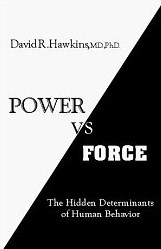


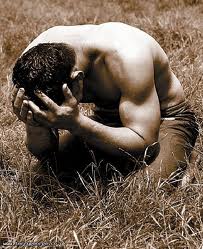







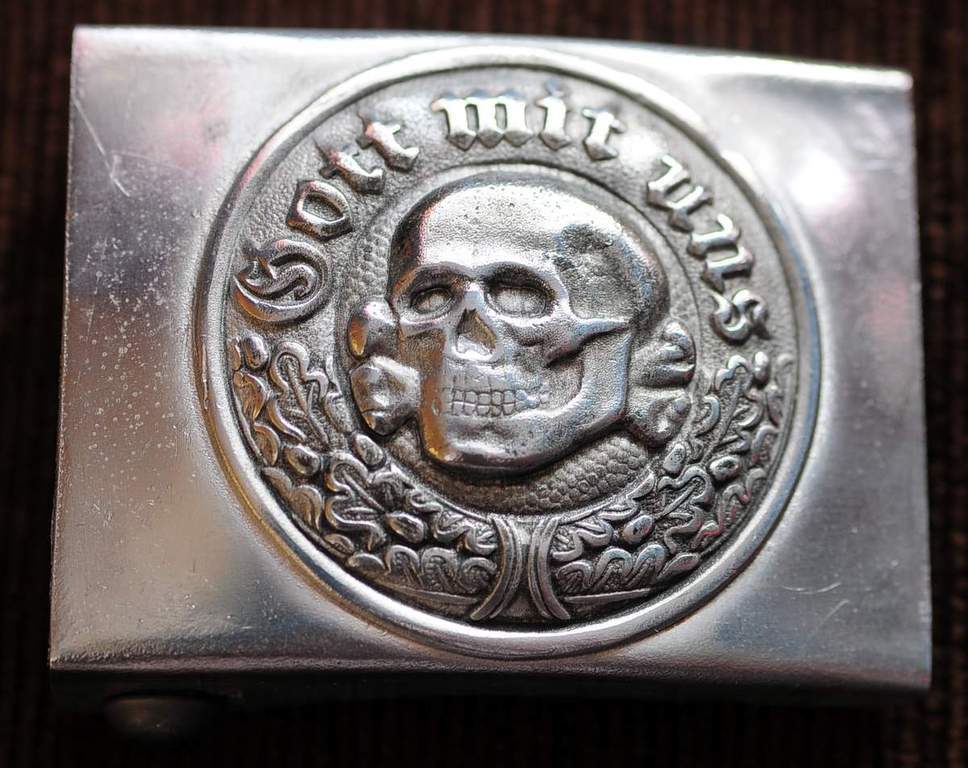
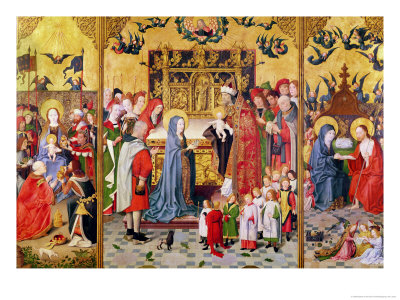


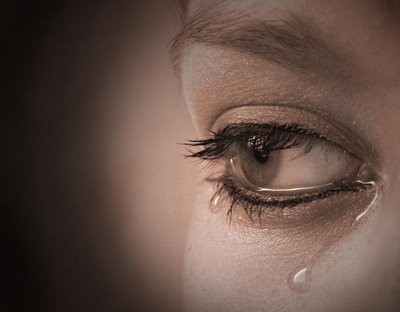
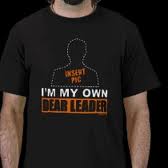
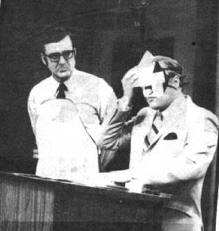
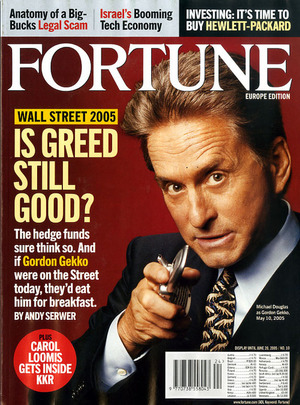
.jpg)

